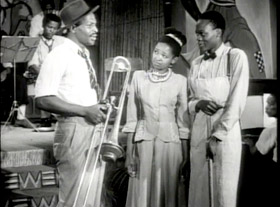Undoing the monument

Heritage and heritage practice has become the sine qua non of postcolonial life in Africa. However, given its ubiquity across tourism brochures, royal-corporate speak and political communication, its uses present many conceptual problems. The Politics of Heritage conference held on 8 and 9 July at Museum Africa in Johannesburg presented an opportunity to shed obfuscations around the concept and bring clarity to it.
Organised by the African Studies Centre at the University of Michigan and the Arts, Culture and Heritage Management division of the University of Witwatersrand, the conference sought to 'illuminate the domains in which heritage is being made in Africa today'. The conference was also aimed at drawing attention to 'the variety of spaces in which a usable past is being made, and to the structures and rules of composition that guide contemporary forms of African heritage'.
The Archive and Public Culture research initiative was well represented by Mbongiseni Buthelezi, who presented a paper entitled 'We are Royal': Reaching for Pre-Zulu Pasts in KwaZulu-Natal, Daniel Herwitz's Monument, Ruin and Redress in South African Heritage and myself with Flashes of Modernity: Heritage According to Cinema [the accompanying image is a still from Donald Swanson's 1949 film African Jim, starring 'empress of song' Dolly Rathebe, which featured in my paper]. The Chair of Archive and Public Culture Research Initiative, Carolyn Hamilton, held the fort by chairing the session on Archives and Democracy.
Entertaining disparate perspectives on a common theme, the conference pulled together areas of practice and thinking, some conventionally affiliated with heritage, such as monuments, archives and other forms of official memorialisation, and others that stand at some remove from heritage discourse in Africa, such as cinema and personal photographic 'mental maps', which present theorists with fecund ways in which to explore the premises and limits of heritage discourse.
No longer was heritage simply about heroism and victorious pasts, but a site for engaging the challenges of contradictory inheritances from the colonial and apartheid periods, and of dealing with the very meaning of heroism in heritage discourse. If the rural space and its taken-for-granted traditionalisms are often seen as being inherent to heritage in Africa, the conference attendees were disabused of this thinking. Thematic clusters around urban heritage, language and politics revealed a number of ways in which urban modernity formed part of what can be regarded as heritage.
Surfacing the political problems associated with the term 'heritage', such as its susceptibility to appropriation by incumbent postcolonial governments, several papers also drew attention to its potential as a relatively new ground for eschewing colonial conceptual schemes such as binaries of race and ethnicity, tradition and modernity, the rural and the urban. Alert to the challenges presented by colonial inheritances, and the ascendancy of neoliberal hegemonies in Africa today, delegates generally concluded that heritage or heritage making in postcolonial Africa is constituted through the unavoidable negotiation of disgraced archives, and the delivery of new knowledge about the past.
Yet some papers also showed that contentions around heritage do not materialise only in the tension between the past and the present. Within the postcolonial present itself, there are contestations around the interpretation of the recent past, notably between official and unofficial voices, throwing into doubt the very authority and interpretive agenda of official democratic structures.
Royalty was another area in which heritage, as a problem of the present, loomed large at the conference. Old systems of leadership, Buthelezi's paper showed, are marshalled alongside new ones through the cultural apparatus of heritage. At play in this often contentious action is the legitimating of political and economic power in the present. Thus, heritage constitutes a significant contemporary site of interface between old and new systems of leadership.
The conference was instructive and significant in that received conceptual premises of heritage were critically disturbed by what Professor Herwitz called 'de-monumentalisation' - the divestment of cultural and historical significance on overarching structures and narratives. De-monumentalising is a subversive counterpoint to colonial heritage practice and contemporary official mortification of the past. The conference's emphasis on this strategy was perhaps its greatest achievement.